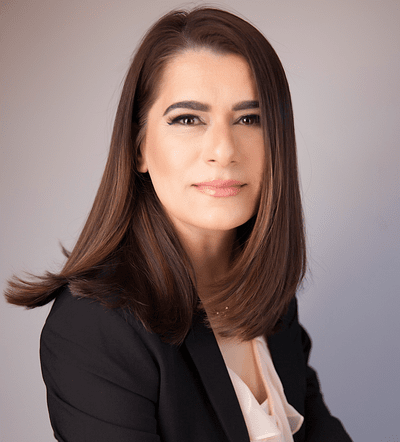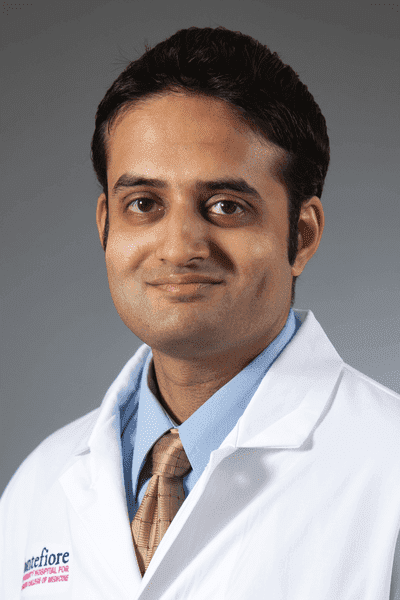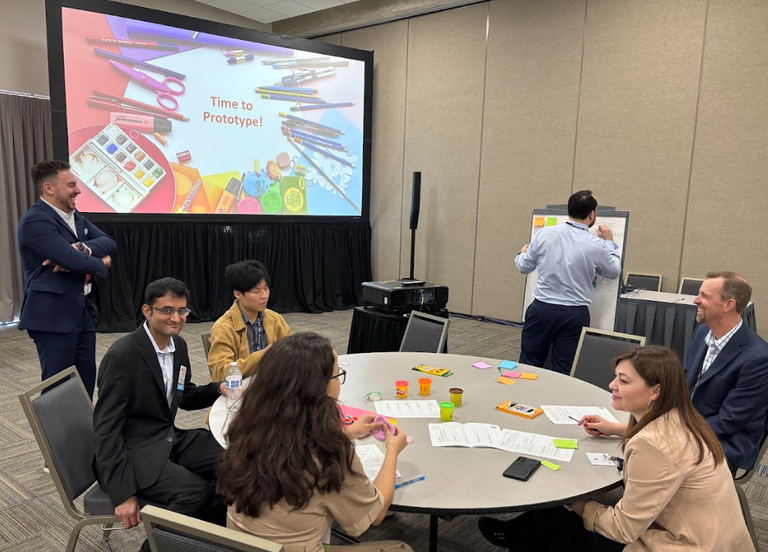


result
Using Technology to Empower Healthcare Professionals and Drive Change in the Specialty
Using Technology to Empower Healthcare Professionals and Drive Change in the Specialty

Olga Kagan, PhD, RN, FAAAAI
For Olga Kagan, PhD, RN, FAAAAI, the journey into technology and medicine is rooted in her hands-on experiences as a nurse. “Drawing from nearly 30 years of experience, including practicing within socialized medicine systems abroad and later in the United States of America, I have witnessed firsthand the remarkable transformation of healthcare delivery,” she said. “I’ve gone from providing care using homemade PPEs, glass syringes and reusable IV jars to navigating the first electronic medical records and now embracing AI-driven technologies. The Health IT evolution I’ve experienced over the last 30 years highlights how far we’ve come, and how much further we can go.”
That journey taught her that technology is not just a tool, but a powerful force that can transform the way healthcare professionals deliver care. But its success depends on clinicians who intimately understand the needs of their patients, taking an active role in shaping its development and implementation. “As a nurse informaticist, scientist and educator, I see immense potential in emerging technologies, but only if they are designed to serve as allies in our mission in delivering timely, accessible and high-quality care to those who need it most,” Dr. Kagan said. “My desire is to empower my fellow colleagues to see technology not as a challenge but as an opportunity to amplify our impact, improve outcomes and ultimately improve the lives of patients, communities and of our peers.”

Sunit Jariwala, MD, FAAAAI
Sunit Jariwala, MD, FAAAAI, first became involved in this space in 2014. “Our asthma center team at Montefiore Einstein developed a patient-facing mobile application for adults and children with asthma,” he said. “Through a user-centered approach, we later adapted the platform for diabetes and other chronic conditions. In the subsequent years, I became the Director of Clinical & Research Innovation at our health system and created an Innovation Biodesign Training Program. I was later board certified in clinical informatics and now serve as our health system’s Medical Director of Digital Transformation. I’ve enjoyed seeing how health technologies can meaningfully impact the lives of patients and their families. Creating these tools requires a multi-stakeholder approach and I am excited that allergist/immunologists can be at the forefront of innovation.”
Their passion for technology and healthcare led them to help develop the Innovation Sprint initiative, taken on by the Health Informatics, Technology & Education (HITE) Committee. The in-person Innovation Sprint is a project with multiple facets supported by webinars, human-centered design tools and more recently AI-enabled technologies to empower healthcare professionals to co-develop solutions that address their needs and the needs of their patients.
The idea for the Innovation Sprint was inspired by the tradition of hackathons that have long been a staple in the technology and computer science fields. Over the years, hackathons have demonstrated their power in driving rapid and impactful solutions. “Hackathons have shown to be invaluable in academia, research and clinical environments, particularly when addressing complex problems under time constraints and limited resources,” Dr. Kagan explained. “Recognizing this potential, we saw an opportunity to adapt and apply this approach within the allergy/immunology specialty.”
The inspiration behind the Innovation Sprint was rooted in the belief that clinicians must play an active role in shaping the tools and technologies they use daily. “From navigating prior authorizations to enhancing patient education and managing practices, clinicians are intimately involved in every facet of care delivery,” said Dr. Jariwala. “By bringing together healthcare professionals with other stakeholders, we can foster a collaborative environment that strengthens relationships, promotes understanding and ensures the development of human-centered, practical and timely solutions.”
The goals of the Innovation Sprint initiative, led by the Health Technology Innovation Biodesign Team, strive to build upon the progress achieved during the 2024 AAAAI Annual Meeting Biodesign course and the highly interactive innovation sprint/mini hackathon session at the 2025 AAAAI / WAO Joint Congress. That 2025 session, “Innovation Sprint: Solving for Challenges in the Allergy/Immunology Specialty” brought together clinicians, educators, students and industry professionals from four countries in a dynamic, team-based workshop. The sprint introduced attendees to the principles of design thinking and human-centered design as powerful tools to tackle real-world clinical challenges.

“Innovation Sprint: Solving for Challenges in the Allergy/Immunology Specialty” session at the 2025 AAAAI / WAO Joint Congress.
Participants identified challenges within the specialty including prior authorization, telehealth access and emerging technologies like artificial intelligence to address disparities in health literacy. With the guidance of expert panelists, attendees explored innovative solutions and refined their ideas into compelling pitch presentations. “Based on the feedback, attendees left the session not just with new skills, but with a renewed sense of empowerment to shape the future of healthcare through innovation. We may even see one of the solutions come to fruition,” Dr. Kagan said.
Looking towards the upcoming year, the recently approved Health Technology Innovation Biodesign and Artificial Intelligence for Allergists/Immunologists online course, currently in development, will serve as a springboard for cultivating a new generation of allergy/immunology innovators. The 2025 AAAAI Practice Management Workshop will also have a breakout session, ‘From Concept to Solution: Leveraging Hackathons for Problem Solving in Allergy/Immunology Practice’ led by Sakina S. Bajowala, MD, FAAAAI.
“We’re working on a lot of exciting things over the next year,” Dr. Jariwala said. “I truly believe that by embracing innovation together, we can not only adapt to change but also drive it for the benefit of our specialty and our patients.”
The Health Technology Innovation Biodesign Team
William C. Anderson, III, MD, FAAAAI
Olga Kagan, PhD, RN, FAAAAI
Nicholas L. Rider, DO, FAAAAI
Sunit Jariwala, MD, FAAAAI
Sakina S. Bajowala, MD, FAAAAI
Thanai Pongdee, MD, FAAAAI
Sujani Kakumanu, MD, FAAAAI
Quratulain Rashid, MD, FAAAAI




